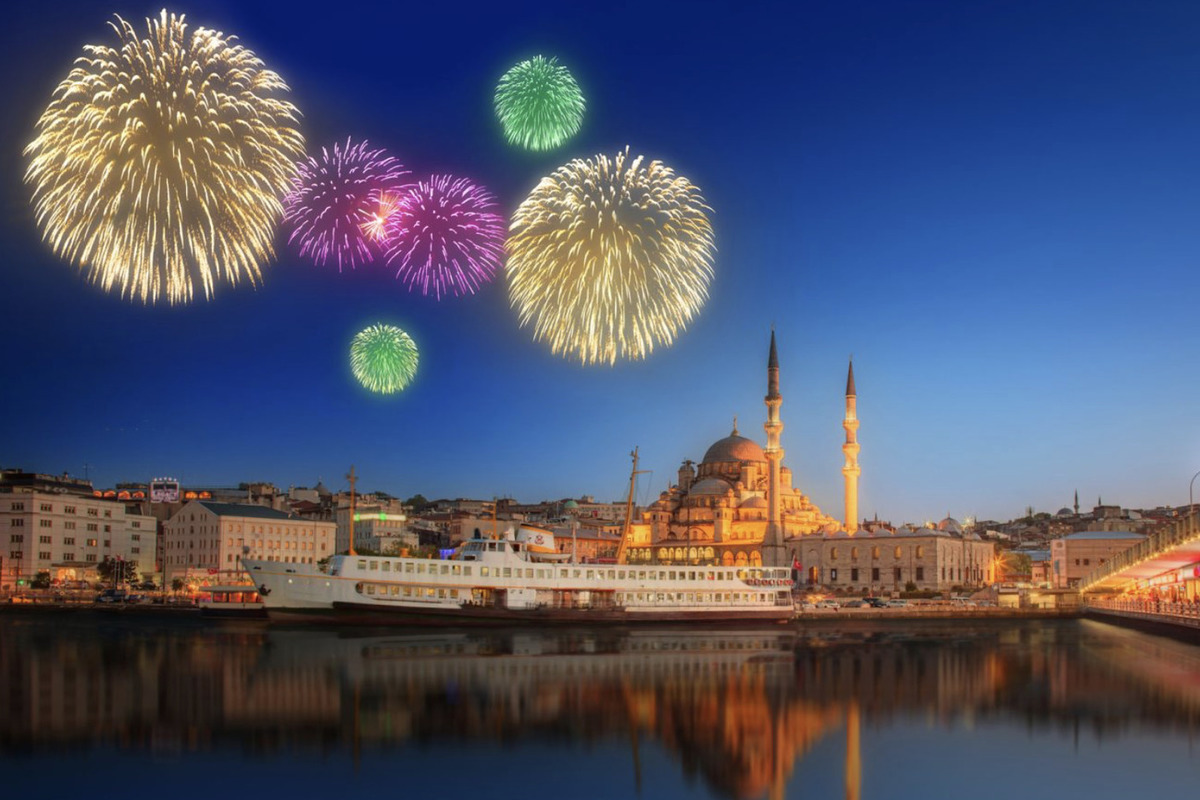Russians teach Turks to celebrate the New Year: gifts, Olivier, “Blue Light”
[ad_1]

What they give and how they celebrate the holiday in Turkey
In Turkey, celebrating the New Year on a grand scale began not so long ago. And “thank you” for the new national celebration must be said to the emigrants who brought their traditions to the country.
Before, the Turks did not celebrate the New Year. Because of this, secular residents were very indignant, believing that if the authorities did not want to celebrate Christian holidays, they would at least allow them to celebrate the change of the calendar. In recent years, the situation has begun to change. It all started with Antalya – women from the post-Soviet countries taught their Turkish husbands not only to give gifts on birthdays and March 8th, but also to eat “Olivier”, “herring under a fur coat” and to celebrate the New Year with the chimes ringing. Gradually other cities caught up.
In Ankara, Istanbul, and Izmir, secular Turks began to decorate Christmas trees or hang Christmas tree wreaths on doors and give gifts to children.
“I live in the center of Ankara, in the European area. After the opposition mayor came to power, the city began to actively decorate for the holiday. In the stores, everyone wishes each other a Happy New Year; various things are sold in gift wrapping with snowmen, Santa Clauses, and reindeers. Last weekend, all the shops were crowded as Turks rushed to buy gifts for each other,” says Ankara resident Serkan.
According to him, the dishes that local residents eat for the New Year are different from Russian ones. “Our traditional New Year’s dish is turkey. Like the Americans, on Thanksgiving Day. Some people cook chicken. There are various snacks (meze) on the table, certainly “Rus salady” (“Olivier”), although we don’t cook it, but buy it in stores,” Serkan explained.
He added that in Turkey there are no New Year’s lights or presidential address on the eve of midnight, as in Russia. But there are holiday editions of concerts, the show “The Voice” and others.
“We eat, talk, listen to Turkish songs, dance, then at 12 o’clock we exchange gifts,” said an Ankara resident.
Ksenia and her husband Ismail moved from the Russian capital to Antalya eight years ago.
“My husband lived in Moscow and speaks Russian. So, from the very beginning of December, he has been driving around Antalya, singing songs about the New Year, he really loves this atmosphere, waiting for the president’s address and watching “New Year’s Lights,” says Ksenia.
In Antalya, Russian-speaking residents organize New Year trees for children. “The difference from ours is that parents come there with their own gift for the child, and, of course, the scope is not the same. But it’s also not bad,” says another Antalya resident, Yulia.
In public schools, January 1 was made a day off; previously, Turks considered it a normal day and went to work, and students went to classes. “In state kindergartens and schools, children do not have New Year holidays, but in private ones they do,” says Ksenia. — My 4-year-old son was taken to the theater located in the center of Antalya to see “The Nutcracker,” and he brought home a bag of gifts. They generally celebrated the entire pre-New Year week. Before that, they were asked to come in carnival costumes, then they had a New Year’s photo shoot.”
It is noteworthy that in Turkey it is customary to give clothes as gifts for the holidays, including to children. Moreover, if one of the parents in the family is a foreigner, then the child can be given a toy. But the Turks themselves prefer wardrobe items.
[ad_2]
Source link








